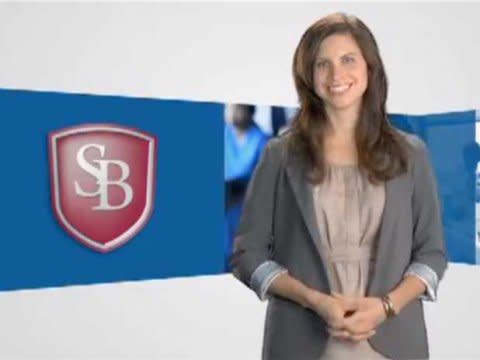For-Profit Colleges Are Looking Sketchier Than Ever

Sanford-Brown Institute is among those owned by Career Education Corporation, which has settled claims that it deceived students with inflated job placement rates.
Career Education Corp., one of the largest for-profit college corporations in the U.S., has agreed to shell out more than $10 million to settle claims that it used bogus job placement rates to boost revenue, according to the New York Attorney General's Office.
The bulk of that sum will go toward funding a $9.25 million restitution fund for students who attended a handful of CEC schools in New York, according to the settlement agreement.
CEC advertised job placement rates of 55% to 80% at several New York schools. In reality, placement rates were between 24% to 64%, according to the DOJ. In its settlement, CEC denied any wrongdoing.
What's most disturbing about the allegations in this case is the apparent lack of oversight that allowed CEC to slink past its many accreditors all this time. According the settlement agreement, organizations meant to monitor the quality of for-profit colleges missed CEC's misreported job placement rates. In some cases, if CEC had reported the real stats, it could have lost its accreditation.
It's a trend that's plagued the for-profit industry for some time. In a scathing report released this month, New York Comptroller Thomas DiNapoli said the state's for-profit career colleges suffer from "alarmingly little oversight."
Half of the schools audited by his office ignore reporting requirements on job placement and graduation rates, he claimed.
"There is alarmingly little oversight of private career schools in New York, leaving too many young adults vulnerable to false promises,”DiNapoli said. “Schools have been allowed to operate without a license for years and some investigations into complaints were left open for 10 years or more. Millions of dollars and the education of thousands of New Yorkers are at stake. The State Education Department has taken some steps to tighten oversight but too many students may be getting taken for a ride if more isn’t done soon.”
Puffing up employment rates for graduates has long been a favorite tactic used by for-profit colleges because it lets them kill two birds with one stone: lure in more students and jack up revenue streams at the same time.
Unfortunately, for-profits are generally among the most expensive schools out there and they often target low-income students.
Earlier this year, a joint Stanford/Harvard study found that for-profit schools spend much less on instructional cost per student than all other schools. Not only that, but a lack of federal aid available to for-profit colleges pushes students to take out pricey private loans that often have far fewer repayment options and interest rates.
Imagine graduating from a for-profit school with $100,000 worth of private student loan debt and no good job prospects. Unlike federal student loan holders, you wouldn't have the option of an income-based repayment plan or forbearance to cushion your way through unemployment. You'd be forced to default on your loans and then good luck getting those debt collectors off your back. All the while, interest would be piling up and your loan would only get bigger with each passing month.
"Students at for-profits account for nearly half of all student loan defaults but only about 12% of post- secondary students," researchers wrote in a Boston University study published last year. " Between 2000 and 2010, the private sector share of federal student aid money grew from $4.6 billion to more than $26 billion, about one quarter of all federal student grants and loans."
CEC is headquartered in Illinois and operates seven career-focused schools in New York: Sanford-Brown Institute campuses in Garden City, Melville, White Plains and New York City; and Briarcliffe campuses in Bethpage, Patchogue, and New York City. CEC also operates several on-line schools, including American InterContinental University and Colorado Technical University. CEC currently enrolls 75,000 students worldwide. The effected students attended during the 2009-2010 and 2011-2012 school years.
More From Business Insider

